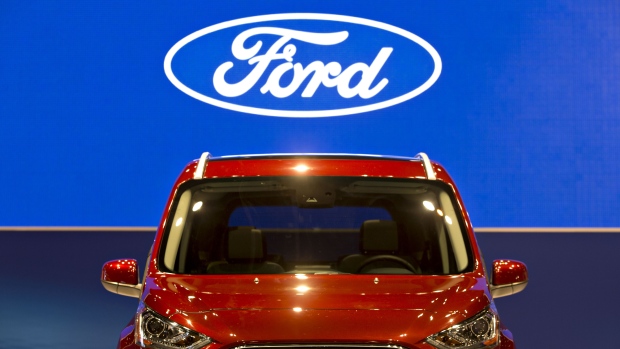Mar 12, 2019
The Case of the Vanishing Van, And Its Meaning for the Trade War
, Bloomberg News

(Bloomberg) -- When is a passenger van actually a cargo van? It’s the obscure legal question at the heart of a trade case that could have profound implications for how American companies respond to President Donald Trump’s tariffs.
Trade attorneys are closely watching a case playing out in federal court involving Ford Motor Co. The automaker imported passenger vans, then removed a row of seats and sold the vehicles as cargo vans. In doing so, Ford paid a 2.5 percent import duty on the vans, because they were classified at the border as passenger vehicles, rather than the 25 percent tariff on light trucks that includes cargo vans.
U.S. Customs challenged the practice, accusing Ford of improperly masking its intentions. The Court of International Trade ruled in Ford’s favor in 2017, but the government has appealed, and the U.S. Court of Appeals for the Federal Circuit heard oral arguments Monday.
The decision could impact how Customs rules in other duty cases, complicating the ability of companies to avoid U.S. tariffs imposed by the Trump administration since last year, said Suzanne Kane, an attorney at Akin Gump Strauss Hauer & Feld. “It’s even higher stakes now,’’ Kane said.
China Deal
Trump is working toward a deal with his Chinese counterpart, Xi Jinping, that could end the trade war between the world’s two biggest economies. Even then, there’s no guarantee the two sides will roll back hundreds of billions of dollars in tariffs imposed on each other’s goods since last year. Meanwhile, Trump has threatened to slap new tariffs on foreign cars, a move that would open a new front in his conflict with America’s trading partners.
Ford argues its maneuvers are a legitimate example of “tariff engineering,” the alteration of a product to have it classified at a lower duty level. U.S. firms are exploring all possible ways to mitigate duties, including getting projects reclassified and shifting production to other countries so the origin of a product changes. Trade lawyers say the outcome of the Ford case will help establish the legal guidelines for tariff engineering.
“It’s a pretty straightforward attempt at pushing the boundaries of what is fairly well established in the tariff engineering realm,” said Randy Rucker of Drinker Biddle & Reath.
Lower Tariff
A decade ago, Ford began importing Transit Connect vans made in Turkey that were classified as passenger vehicles. After the vans cleared customs but before they left port, a subcontractor removed a second row of seats and made other changes to sell them as cargo vans, according to court filings. Had they been classified as trucks, the duty would have been 25 percent, a levy known as the “chicken tax” because it was imposed in the 1960s when the U.S. retaliated against Europe for slapping duties on American chicken.
Customs officials objected to Ford’s strategy, deciding in 2013 that the conversion amounted to “improper artifice or disguise” and the vehicles should be classified as cargo vans with the higher duty. Ford protested the decision.
The case then went to the U.S. Court of International Trade, which said that under well-established customs law, manufacturers can intentionally make products in such a way that they avoid higher tariffs. But it also said it’s illegal for companies to portray a product as something it’s not, such as in the case of an importer that hid high-quality tobacco in a bale of lower-quality product to fool agents at the border.
Disguised Vans
The court said that the Ford vans were properly classified on import, and that Customs went too far in questioning Ford’s intent for manufacturing the vans. “Parsing manufacturing steps and the reasons behind those steps in an effort to uncover disguise or artifice threatens to turn the concept of legitimate tariff engineering on its head,” the court said.
In a brief filed for this week’s appeal hearing, the government focused on the classification’s wording: a vehicle “principally designed for the transport of persons” rather than goods. Ford’s “scheme” of designing and marketing the vehicle as a cargo van and using a “stripped down” version of the seats to be removed shows it should be subject to the higher duty, the government said.
But Ford argued in its brief that goods must be classified in their condition as imported, regardless of whether they are later altered -- and that the vans, as imported, had the features of a passenger vehicle.
A verdict of the appeals case is expected in the coming weeks.
To contact the reporters on this story: Mark Niquette in Columbus at mniquette@bloomberg.net;Andrew Mayeda in Washington at amayeda@bloomberg.net
To contact the editors responsible for this story: Sara Forden at sforden@bloomberg.net, Sarah McGregor, Robert Jameson
©2019 Bloomberg L.P.